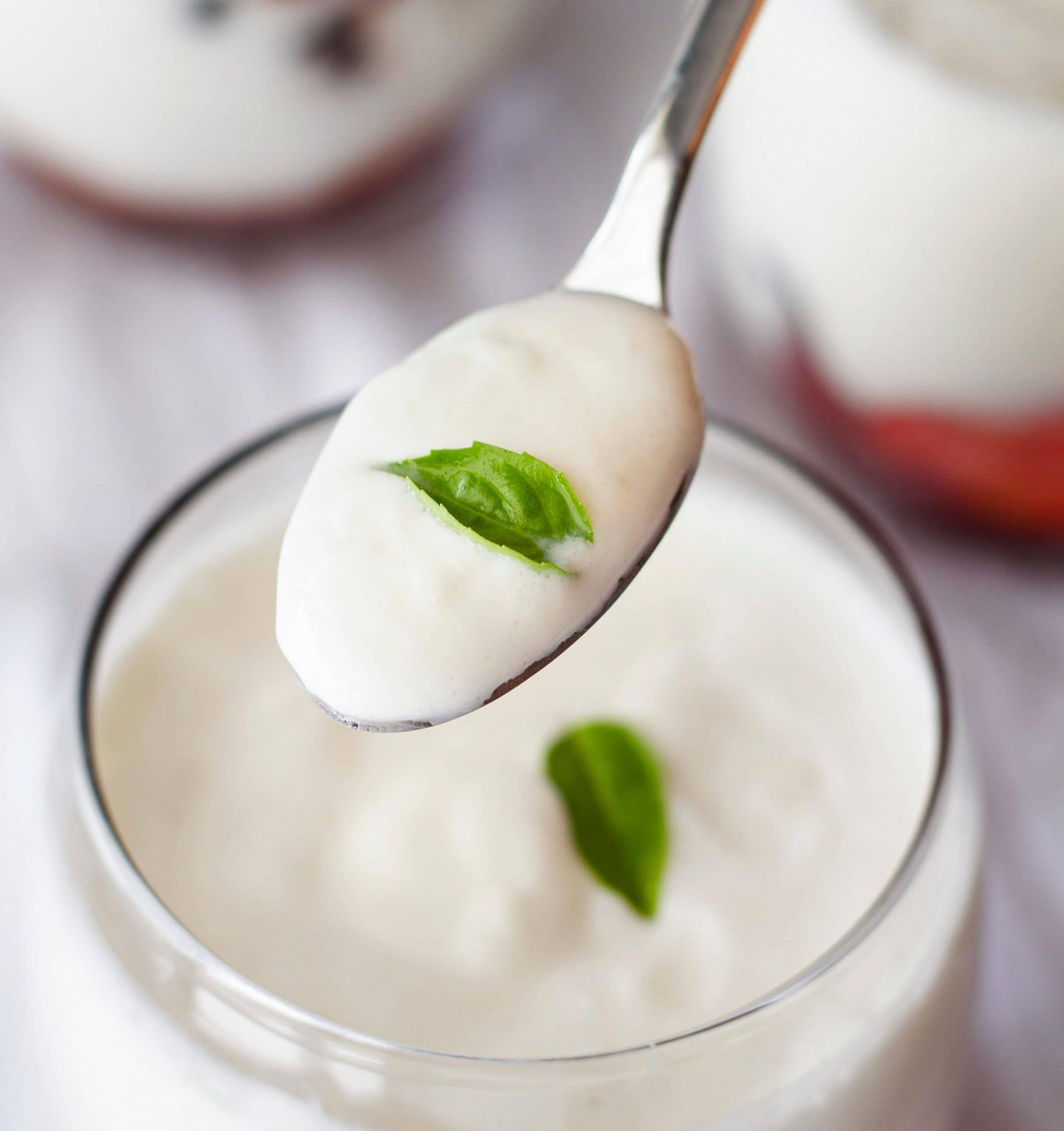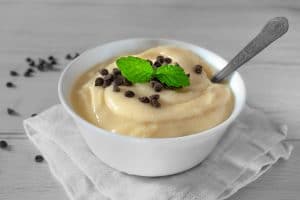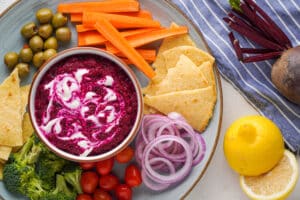Best Bulgarian Yogurt Brands
Important Note: When you buy through our links, we may earn a commission. As an Amazon Associate we earn from qualifying purchases. Content, pricing, offers and availability are subject to change at any time - more info.
The Bulgarians certainly know how to get yogurt right. If you’re not familiar with Bulgarian yogurt, it just happens to be one of the most popular types of yogurt on the planet. A centuries-old invention that’s exclusive to Bulgarian heritage, Bulgarian yogurt strikes the perfect balance of flavor to bring you some of the best yogurt you’ll ever eat.
To get in on this craze, a few companies offer their own Bulgarian yogurt. Although, the majority of the brands tested turned out to be quite good, we wanted to share our two favorite picks.
Here, you will find the best of the best, plus a vegan-friendly recipe that you can make with minimal effort. But no matter which one you ultimately choose, one thing’s for certain: you will never look at yogurt the same way. In fact, you may find yourself sticking strictly to Bulgarian yogurt.
What Is Bulgarian Yogurt?
Bulgarian yogurt is a dairy product that is made by fermenting dairy. It is triggered by only two bacterial strains:
- Streptococcus Thermophilus
- Lactobacillus delbrueckii ssp. Bulgaricus
There are various yogurt-like foods made from a variety of bacterial strains, the most common being a combination of bifidobacteria and acidophilus. Once added, people sometimes call this food “probiotic yogurt.” Fermented dairy products have been enjoyed as a traditional food for ages in places like the Mediterranean, Asia, and Eastern Europe.
How It Started
A Bulgarian student by the name of Stamen Grigorov studied the bacterial structure of Bulgarian yogurt and proceeded to discover Lactobacillus Bulgaricus. It was then that Bulgarian yogurt caught people’s attention.
Grigorov then managed to attract the attention of Professor Ilja Mechnikov, one of the world’s greatest scientific minds of that generation. By the time 1908 rolled around, the Pasteur Institute in Paris independently confirmed the results of Grigorov’s study, leading to the naming of the bacterium, Bacillus Bulgaricus, which means Bulgarian milk bacterium.
Bulgarian yogurt is one of the most intensively researched dairy products, and it is associated with numerous health benefits. After more than a century of research, the yogurt raised the bar for this type of food and even defined future regulations.
As such, Bulgarian yogurt became suitable for international distribution. People often ask questions about Greek flavored yogurt and its relationship with Bulgarian yogurt. In short, Greek yogurt is a form of strained yogurt with no established bacterial combination.
Greek yogurt may be made into probiotic yogurt. And as a rule, it must always be filtered or strained afterward. On the other hand, Bulgarian yogurt has a defined combination of bacteria, which are the only two strains of bacteria that may be eaten without filtering in most cases.
Traditionally speaking, the milk used in the production of Bulgarian yogurt was either sheep’s milk, goat’s milk, or buffalo’s milk. Each milk provided the yogurt with varying thicknesses. Today, however, commercial manufacturers typically make their yogurts with cow’s milk.
Let’s switch our discussion to some of these manufacturers and the brands of Bulgarian yogurt that they produce.
White Mountain
Compared to all other commercial yogurt brands, White Mountain boasts the highest number of live and active cultures. In fact, White Mountain’s Bulgarian yogurt contains upwards of 90 billion colony-forming units of cultures.
And that’s per serving! What’s more, you won’t find any sweetener or thickening agents added to White Mountain yogurt, thus making it perfectly organic.
The taste of White Mountain’s Bulgarian yogurt is absolutely incredible. Truly, there’s something unique about the balance between creaminess and tartness that White Mountain captures perfectly. Both the Whole Milk and Nonfat offerings provide a rich taste that melts in your mouth.
Another big plus is that it’s a really light food, especially the Nonfat version, clocking in at just 90 calories. This does present an issue for yogurt lovers, though. Its lightness makes it easy to consume more than you initially intended — it’s that good.
White Mountain’s Whole Milk variety is much more filling, and it’s packed with more protein. Even better, Whole Milk Bulgarian yogurt doesn’t have as many carbs as the Nonfat variety, making it a superb snack at any time of the day.
Most people enjoy White Mountain on its own or with added ingredients. The sky’s the limit here, as you can add in a variety of foods to broaden your meal. The only downside is the addition of cow’s milk. Non-vegans can enjoy White Mountain to their heart’s content. But vegans will want to steer clear.
Fear not, though. We’ll show you how vegans can enjoy Bulgarian yogurt, too. Stick around until the end to find out how.
Trimona
Trimona is another hit in the Bulgarian yogurt industry, and rightfully so. After all, Trimona is true Bulgarian yogurt, having been brought over to the States in 1991. The story of Trimona yogurt is interesting in that when the yogurt was brought over here, it came in two simple glass jars.
Created by Atanas Valev, the homemade recipe soon became a big hit with his neighbors and friends. So Valev started making more the meet demand. Word got out, and commercial production began in order to keep up with the yogurt’s growing popularity.
Trimona’s Bulgarian yogurt is notable for containing just 6 grams of sugar. What’s more, no straining takes place, keeping all the whey intact. The company strives to ensure that its yogurt is made to the highest standard, and we have to agree that it takes great pride in making its yogurt special.
It’s a grass-fed organic food with taste and quality that are both out of the world. If you’re looking for an excellent Bulgarian yogurt to try, Trimona won’t disappoint.
Make Your Own Vegan Bulgarian Yogurt
Want to try Bulgarian yogurt but have to avoid the milk ingredient? You’re not alone, and thankfully, companies have years the plea for the possibility of vegan Bulgarian yogurt. Making your own is easy thanks to these companies and the products they offer.
One such company is Allah’s Posh Flavors, which makes Craft Your Own Vegan Bulgarian Yogurt Probiotic Starter Culture. Posh Flavors provides the cultures, and you supply the rest. These live cultures come freeze-fried and are plant-based only.
There are plenty of vegan yogurt recipes online, but we like one that’s made with cashews, water, apple cider vinegar, and your vegan Bulgarian probiotic cultures.
You will need
- 2 cups of cashews, which need to be soaked overnight
- 2 teaspoons of apple cider vinegar
- ½ teaspoon of probiotic powder
- 1 ½ cups of filtered water
- A pinch of sea salt
To start, rinse your cashew well and add them to a blender along with all other ingredients except for the probiotic powder. You want to blend until you get a super smooth, clean, and creamy mixture.
About three minutes of blending on your highest setting ought to do it. Next, pour the blended contents into a clean bowl or jar. OK, this next part is very important. Once transferred, pour in your probiotic powder and stir using a plastic or wooden utensil only. You will need to stir for at least two minutes to get everything completely mixed.
If you use metal, it will cause a negative reaction with the good bacteria in the probiotic powder. And in doing so, it will completely negate the function and purpose of the live cultures.
Now, place either a paper towel or cheesecloth over your bowl or jar and secure it with a rubber band. You need to set it in a warm and dry place for 24 to 48 hours. If you live in a tropical climate, simply place the bowl or jar on your countertop.
If you live in any other climate, it’s best to place the yogurt in your oven. However, you want to make sure that you haven’t used the oven recently, as it needs to be room temperature inside. Keep the oven turned off, but turn on the interior oven light.
In about 48 hours, you will have thick, creamy, vegan-friendly Bulgarian yogurt. Give it a good stir and transfer the contents into another clean jar or bowl and place it in your refrigerator for at least two hours.
Is Bulgarian Yogurt a Good Choice for Vegans?
On its own, Bulgarian yogurt is not an ideal food choice for vegans. That’s because it is traditionally made with cow’s milk. If it isn’t made with cow’s milk, it’s likely made with sheep’s milk. Fortunately, you can make your own vegan-friendly Bulgarian yogurt by following the directions above.
As you can see, there are no animal products whatsoever. And because you’re using vegan live cultures, the recipe is 100% safe for vegan diets. Feel free to add your choice of fruits or other ingredients when you’re ready to serve your yogurt if you wish to give it more flavor.
If you liked this handy vegan Bulgarian yogurt recipe, be sure to check out our other vegan recipes here. We have recipes for chocolate coconut bites, Tahini brownies, and tons of other snacks and meals — and they’re all vegan-friendly!
























